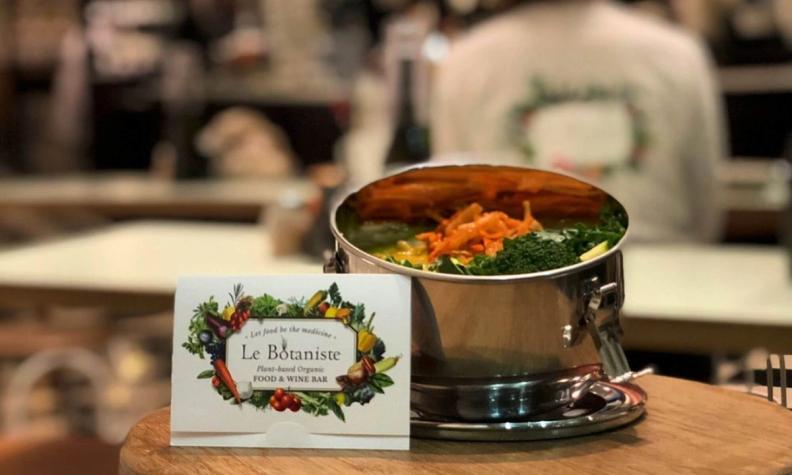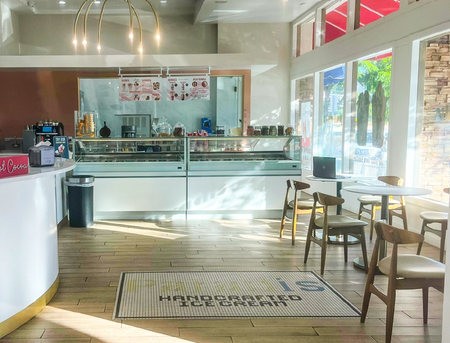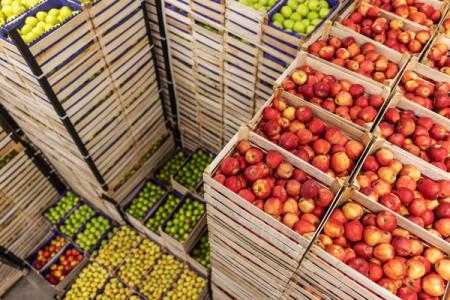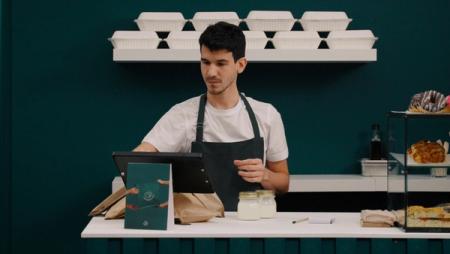The Future of Food with CO2-Neutral Le Botaniste
The Future of Food with CO2-Neutral Le Botaniste

Le Botaniste is a plant-based food and wine bar. They began in Ghent, Belgium in 2015 and have since expanded to New York City. They are certified CO2-neutral and take a zero-waste approach in all that they do, in order to provide pure, plant-powered meals that are good for you and the planet.
We caught up with their CEO, Laurent Francois to discuss what it means to run a truly sustainable business and get some zero-waste tips from their creative kitchen.

You just celebrate 5 years in New York City! How have you seen the food industry evolve around sustainability and what do you think is next?
For us, Le Botaniste represents the future of food: healthy, sustainable, utterly enjoyable and good for your well-being, your immunity but also for the planet.
Sustainability has been central for us since day one. It’s holistic, from becoming as waste-free as possible to using compostable paper goods and serving a completely plant-based and organic menu.
We really love seeing more restaurant concepts getting greener and improving.
We are convinced plant-based food will be a bigger part of the food industry landscape.
At Too Good To Go, we often talk about the disconnect between individuals and the food we eat is a contributing factor to the issue of food waste. What does the concept of mindful eating mean to you - and how is it encouraged in your restaurant?
As a “slow food concept”, we encourage taking your time, carefully choosing your meal, and eating it in a comfortable set up. And it’s why we decided to have a dining room and team members who are highly trained to help out choosing the right meal for you.
For the moment, we offer a heated patio; in more normal times, our dining rooms are a space for dining, quick or long, with or without wine. In other words — a place to enjoy food as an essential, casual but delicious and cozy part of your day.
You are a certified CO2-neutral food and wine bar. Can you explain what that means?
In 2016 we partnered with CO2logic® to reduce our energy use to a minimum, and to offset 100% of our greenhouse gas emissions by supporting a Gold Standard certified climate project. They helped us calculate our emissions by using each ingredient of our recipes, the number of bowls sold, and our energy consumption. During the process, we improved some of our operations to make them less CO2 generating and then we chose a project to offset the rest — bringing more efficient stoves to families in Ghana. It’s an easy and highly informative process.

Tell us about how Le Botaniste’s sustainability aspirations helped shape your menu. Can you share examples of menu items that were born out of sustainable innovation?
Our founder, Alain has a love for innovating and trying to use every little piece of a veggie in the process.
One example: Pulp from our juices are used as bases for our hummus for example, making use of 100% of the beautiful beets or carrots we receive every day!

Are there any tips to reduce food waste in your kitchens that our readers could implement at home?
Reuse, reuse, reuse: transform something you tend to throw away in something else! Soup, hummus or oven-dried crackers can be great ways to make it happen (we use all parts of the broccoli for example: steaming the florets and transforming the stem into a soup).
If you’re in NYC, you can order for takeout and delivery on their website, and of course, experience their outside dining. For more information on Le Botaniste, give them a follow on Instagram.


